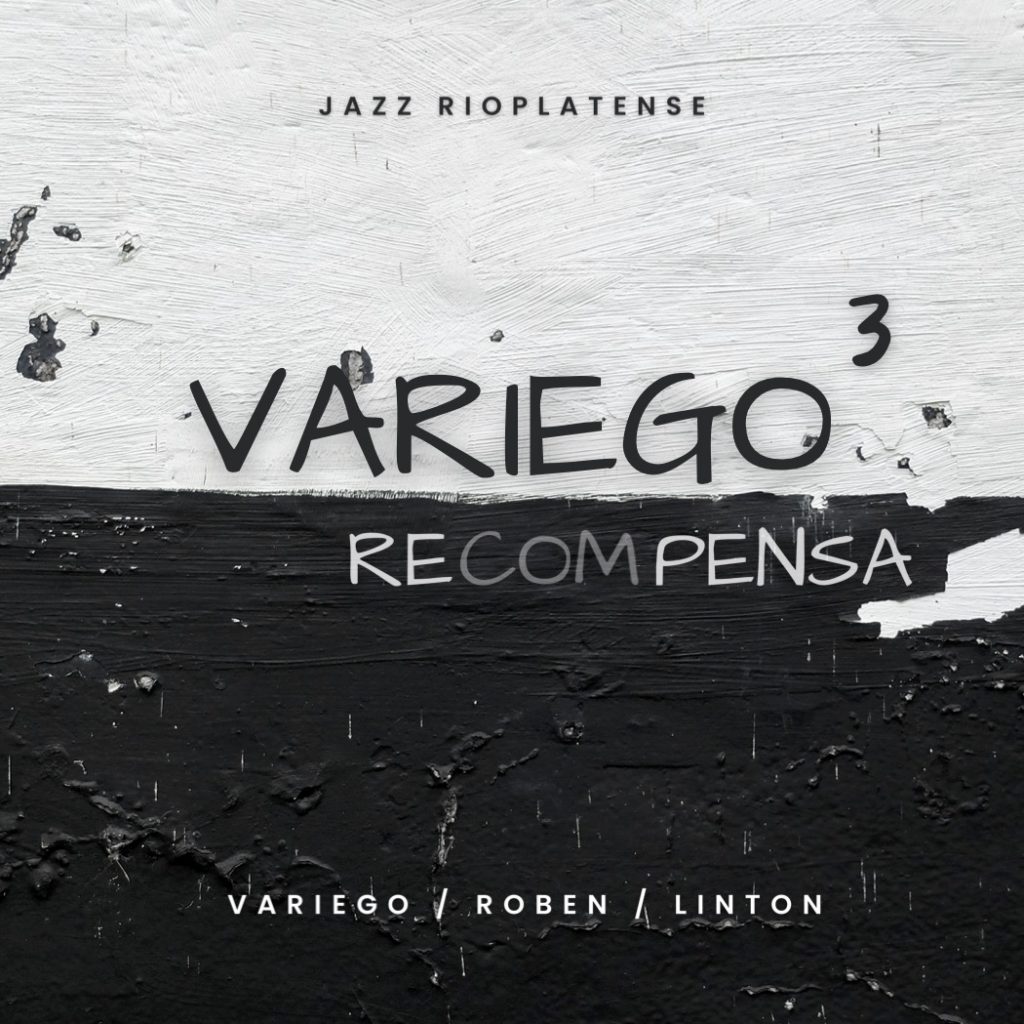
More Jazz
VARIEGO Tango Blues. And the Trees, Recompensa. Susurro de Paris. Tema de Manuel. Reencuentro. Malambo. What ls Home. Variego . CENTAUR 4074 (44:30)
The jazz part of the Centaur catalogue seems to be the jewel in the label’s crown. I definitely en- joyed David Park’s Passion of the Soul disc (reviewed Fanfare 47:l); a review that ledto Fanfare’s first-ever live concert review (at London’s United Nations Ballroom: see the Fanfare Archive).
Entitled Recompensa, this disc finds Variego3 (Jorge Variego, clarinets; Jack Roben, electric guitar; Rob Linton, double-bass) presenting a sequence ofeight pieces by Variego himself. Recorded in Knoxville, Tennessee, in February 2023 (and all in one day), this disc presents highly sophisticat- ed jazz. While the first track, Tango Blues, might sound relatively traditional in the rhythmic slinkiness iness of its opening and cheeky clarinet solos, it soon moves into more modem territory. The lyricism of Variego’s clarinet is underpinned by the more rhyhmic guitar and bass. As the music fragments, and imitation between instruments creeps in, the soundscape becomes sparser and more exploratory as if striving to refind itself.
Altogether more elusive is And the Trees: slow,lyrical, dreamy but with an acidic tang to the harmonies, mirrored in the steely sound of Jack Roben’s electric guitar against the creamier strains of Variego’s clarinet. This music begins quietly and diminuendos to near inaudibility, at which point one seems invited to focus on the sheeq strange beauty of the sounds produced. A1l of this makes the fulI appearance of melody all the more cherishable in this lovely track, characteizedby a sort of modernistic nostalgia. The titular track and the third in running order, Recompensa, extdes a sort of sophisticated jollity. A duet between Variego and Ruben lifts the mood beautifully, with its slightly qll;izzica! ending usherin g in Susurro de Paris (Whisper of Paris), a gently wafting number in which Variego’s woody, plaintive sound speaks volumes.
I don’t know who Manuel is, but Tema de Manuel is deliciously haunting. The potent melody stays with the listener for a long time. As the longest track on the album, there is space for expansion, and for musings as well. The long solo by Roben is particularly impressive, both gentle at heart and gently rhythmic, ending with the tenderest of strummings to lead back into Variego’s liquid legato melody. Tema de Manuel seems linked to the next piece, Reencuentro (Reunion), but here the quietude carries an undercurrent of disquiet. If this is a reunion, neither party is sure of their feet.
Active rhythm retums with the slirlriy Malambo, as circular phrases allow for a sense of natural forward movement and the composed fade at the end is perfectly managed. Finally, there comes What is Home (no question mark). As the title might suggest, the effect here is ungrounded (homeless, one might say, possibly home keyless); Rob Linton’s double-bass makes its mark via its desolate pizzicato.It’s a powerful way to close. Shying away from any overt virtuosity, the players won- derfully ask us instead to enter a reflective space.
There is no documentation apart from a track listing and recording information: the space Centaur uses for notes is filled by one large black-and-white photograph of the musicians-not a bad thing, of cowse. It just means the music has to speak completely for itself, and it certainly does that. This is a great disc, and a treat for all jazz lovers. The range of styles is large; all three players are superb in their own right and even better together as one entity. A Want List candidate, for sure. Colin Clarke